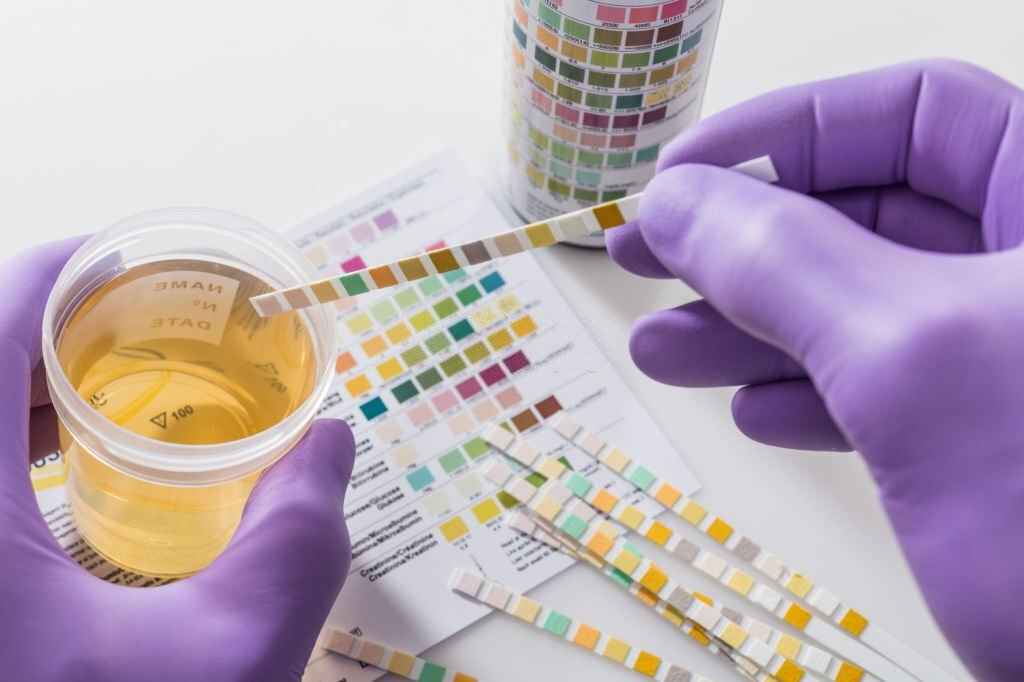Uric Acid Treatment at Home: How to Control Uric Acid Levels Naturally

Medically Reviewed By
Dr Divya Rohra
Written By Srujana Mohanty
on Feb 28, 2022
Last Edit Made By Srujana Mohanty
on Jan 9, 2025

What is Uric Acid?
Uric acid is a waste product formed due to the breakdown of purine-rich foods like mushrooms, green peas or mutton. This uric acid accumulates in the joints in the form of crystals leading to pain and swelling of the joints. The increased levels of uric acid in the body lead to a medical condition known as gout.
When a substance like purine breaks down in the body, it forms uric acid. Purines are naturally present in the body and commonly found in foods and drinks.
Uric acid normally dissolves in the blood and passes from the body through urine. However, if your body doesn’t eliminate the produced uric acid, it can cause severe health problems.
Dried beans, peas, alcoholic beverages (especially beer), liver, anchovies, and mackerel are high in purines. These foods make passing uric acid difficult.
Also, read https://redcliffelabs.com/myhealth/lab-test/uric-acid-normal-range-need-for-uric-acid-test/
In this article, read about some natural ways by which you can reduce the levels of uric acid in your bloodstream.
Limit purine-rich food

Since uric acid is formed in the body due to the breakdown of food that has high content of purine in it, therefore, reducing the purine-rich food from your diet can significantly help in reducing the levels of uric acid in your blood. The purine-rich food includes:
- Mushrooms
- Organ meat
- Green peas
- Pork
- Cauliflower
- Mutton
- Spinach
- Dried beans
- Fish
Avoid sugary food and beverages

According to studies, consumption of a lot of sugary food can also lead to uric acid accumulation. Therefore limiting or avoiding sugary food and beverages can help in reducing the levels of uric acid. Fructose is one of the major forms of sugar found in processed and refined food items that can cause the levels of uric acid to increase. The high fructose corn syrup present in sugary drinks, fruit juices and sodas is a mixture of fructose and glucose. The syrup contains 55% fructose and 42% glucose which is absorbed at a faster rate by the body that exponentially increases your blood sugar level, giving rise to higher amounts of uric acid in the body.
Increase intake of water

Drinking a lot of water is very necessary not only for uric acid level reduction but other diseases as well. In case of uric acid, drinking more water enables your kidney to flush out uric acid from the body at a faster rate. This prevents the uric acid from accumulating in your body.
Avoid alcohol consumption

Alcohol is known to trigger high uric acid levels thereby increasing the risk of development of gout. This is majorly because, when you consume alcohol, your kidney gives more priority to the removal of products formed due to alcohol instead of uric acid. This increases the accumulation of uric acid in your body. Also, certain alcoholic beverages like beer are rich in purines.
Dietary modifications
Diet plays an important role in management of uric acid levels in your blood. Certain modifications in your diet can help you reduce the levels of uric acid in your body naturally. The food items that should be added to your diet include:
-
Coffee

According to the Arthritis foundation, the chlorogenic acid present in coffee is an antioxidant that lowers the levels of uric acid in your body. According to research, individuals who drink coffee regularly have a lower risk of developing gout as compared to those who do not consume coffee.
-
Cherries

According to research, consuming cherries can not only reduce your risk of developing gout but also help in preventing gout attacks in people already suffering from gout. Therefore, including cherries in your daily diet can be a good option to reduce uric acid accumulation.
-
Citrus fruits

Citrus fruits are a rich source of vitamin C and studies have shown that vitamin C-rich food and supplements can effectively lower the levels of uric acid in your blood. Therefore, you should try including citrus fruits like orange and lemon in your diet.
-
Fibre-rich diet

Fibre is a very important component of your food. If you take a diet that is rich in fibre content, it will help you balance your insulin and blood sugar levels. Fibre also helps your body to get rid of the uric acid formed after the breakdown of food. Fibre also makes you feel full early, reducing your chances of overeating. The foods that are rich in fibre content include:
- Oats
- Vegetables
- Dried fruits
- Barley
- Nuts
Maintain body weight
According to a study, being overweight can increase the levels of uric acid in your blood. An optimum body weight is very essential to keep all the vital parameters in check. Therefore, whether you have high uric acid or not, you must alway strive for a healthy body weight.
Medications
Certain medicines are known to increase the level of uric acid, therefore, if your reports show high uric acid levels, you must surely consult your doctor once. The medicines that facilitate accumulation of uric acid in the body include immunosuppressant drugs, antituberculosis antibiotics, diuretics, and low-dose aspirin.
Reduce stress
Stress is another factor that gives rise to various health issues as it disturbs the common metabolism and physiological functions of your body. You can reduce your stress by:
- Performing breathing exercises like yoga
- Taking a good quality sleep by limiting digital screen time, keeping your sleeping cycle consistent and avoiding caffeine intake post lunch.
What Might Cause High Levels of Uric Acid?
High uric acid may lead to severe health conditions. Several factors contribute to it. These are:
- Family History—High uric acid levels may be caused by genetics or a family history of gout. Any other medical history can also be a major factor.
- Obesity- Overweight and obesity can increase the production and reduce the excretion of uric acid. Always monitor your BMI and maintain a healthy weight.
- Medical Condition- Health conditions such as hypertension, hypothyroidism, and kidney disease may lead to high levels of uric acid.
- Dehydration—Not drinking enough water can make passing urine difficult, forcing uric acid to form crystals later.
- Fasting: Fasting may cause an unstoppable increase in uric acid because of the breakdown of body tissues.
- Stress: Stress is something everyone ignores. However, chronic stress may affect overall metabolic processes.
What Are The Symptoms of High Uric Acid Level?
The symptoms are unnoticeable in the beginning, which leads to kidney stones or gout. Some of the common symptoms of high uric acid levels are:
- Joint pain
- Swelling, redness, or inflammation
- Stiffness
- Kidney stones
- Gout attacks
- Fatigue
- Fever
- Tophi formation (chronic hyperuricemia)
- Difficulty in moving
- Frequent urination
- Fever
Also, read https://redcliffelabs.com/myhealth/web-stories/vegetables-that-increase-uric-acid-in-the-body/
How To Manage High Uric Acid Levels?
Here is what you can do to manage high uric acid levels at home.
- Reduce or avoid sugar intake, which may spike uric acid levels.
- Focus on reducing weight as low weight might reduce the risks of gout.
- Consume fiber-rich foods that can improve kidney function.
- Practice deep-breathing exercises to reduce stress, as stress can increase the risk of gout attacks.
- Avoid alcoholic beverages, as alcohol can hinder uric acid production.
Diet for Maintaining Uric Acid Levels
A purine-rich diet mainly affects uric acid levels. There are foods you should eat and avoid to maintain uric acid levels.
Food To Eat:
- Dry fruits
- Nuts and seeds
- Eggs
- Dairy products
- Vegetables, specifically lettuce, cucumber, potatoes, and beetroots
- Whole grains and cereals
Food To Avoid or Consume in Moderate Amounts:
- Red meats (beef, pork, and mutton)
- Organ meats (sweetbreads and liver)
- Turkey
- Seafood (fish and shellfish)
- Mushroom and green peas
- Sugar
- Alcohol
- Green leafy vegetables include red cabbage, beans, spinach, cauliflower, and asparagus.
- Whole-grain rice and bread
- Non-soy legumes
- Low-fat or fat-free dairy products
Normal Uric Acid Level
The normal uric acid level is different for females and males. In females, the range is between 2.4 and 6.0 mg/dL, and in males, it is between 3.4 and 7.0 mg/dL.
|
Uric Acid Levels |
Females |
Males |
|
Low |
Less than 1.5 mg/dL |
Less than 2.5 mg/dL |
|
Normal |
1.5-6.0 mg/dL |
2.5-7.0 mg/dL |
|
High |
More than 6.0 mg/dL |
More than 7.0 mg/dL |
8 Uric Acid Treatment At Home
Food and beverages low in purine are the best home treatments for uric acid. However, other remedies can also help.
- Limit purine-rich food.
- Avoid sugary food and beverages.
- Increase intake of water.
- Avoid alcohol consumption
- Dietary modification
- Maintain body weight
- Medications
- Reduce stress
Takeaway
High uric acid levels can lead to various health issues and therefore their regular monitoring and maintenance is essential for a healthy lifestyle. Now that you know the ways by which you can reduce the level of uric acid naturally, try including them in your daily lifestyle.
Frequently Asked Questions (FAQs)
-
Which is the fastest way to reduce uric acid levels?
The fastest way to reduce uric acid levels in your body is to drink plenty of water.
-
How can I test my uric acid levels?
The uric acid levels can be tested by a simple blood test. You can book your test at Redcliffe labs by either calling our centre or booking it online through our official website.
-
How much will a uric acid test cost me?
The cost of a uric acid test at Redcliffe labs is approximately Rs 400/- which under special discounts will cost you Rs 160/-.
Leave a comment
3 Comments
Pran Ballav debnath
Jun 23, 2025 at 5:23 PM.
Uric acid test .
Myhealth Team
Jun 24, 2025 at 6:52 AM.
Hi, To book a uric acid test call us on the number 8988988787.
Leonida Otieno
Nov 23, 2024 at 4:13 AM.
Very educative. Thank you.
Myhealth Team
Nov 26, 2024 at 7:27 PM.
Thank you! Glad you found the blog informative.
Devesh
Oct 13, 2024 at 9:47 AM.
Very informative thanks
Myhealth Team
Oct 13, 2024 at 5:30 PM.
We are glad to hear that you found the information helpful! If you have any more questions or need further assistance, feel free to ask. Your health and understanding are important, and we are here to help!



